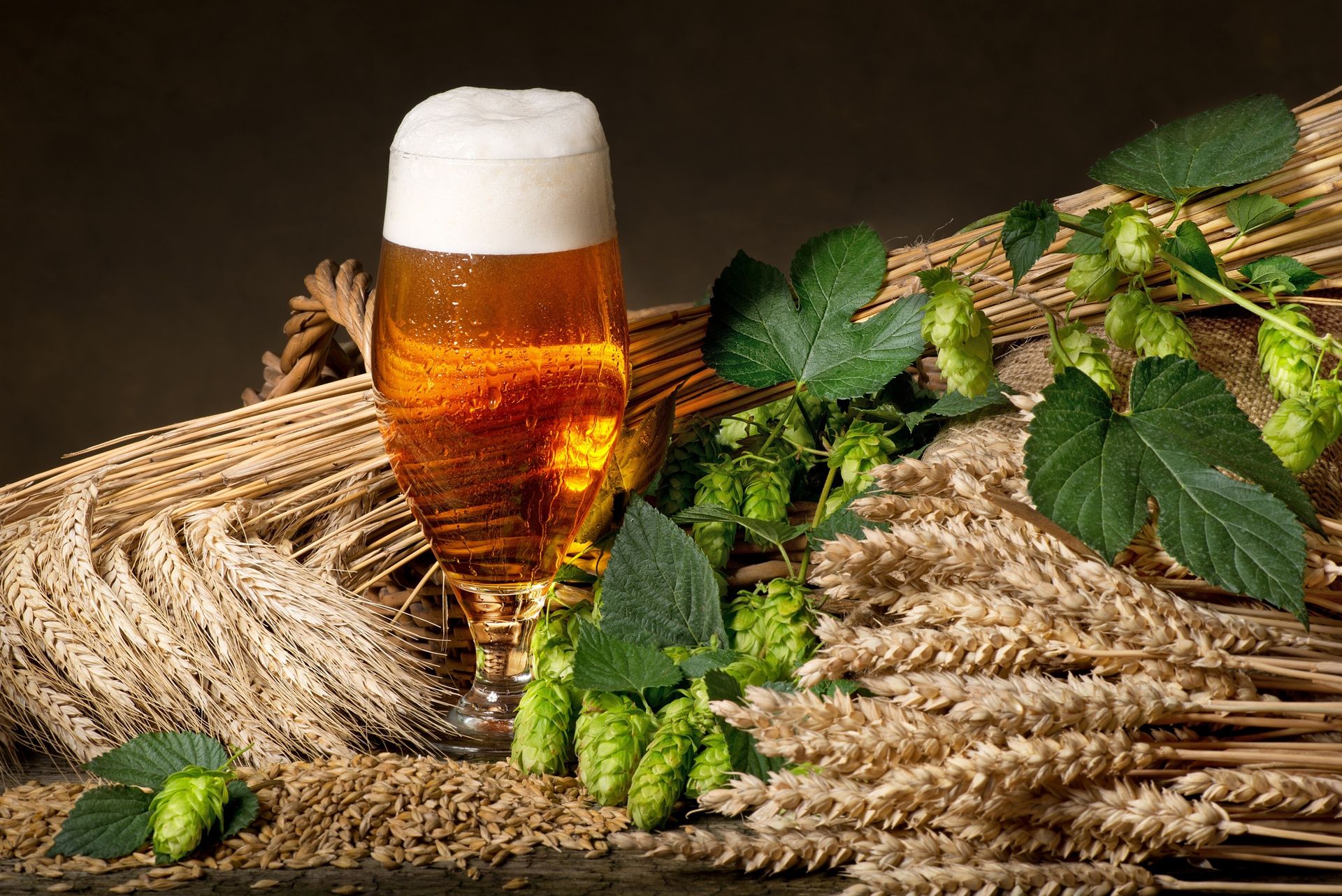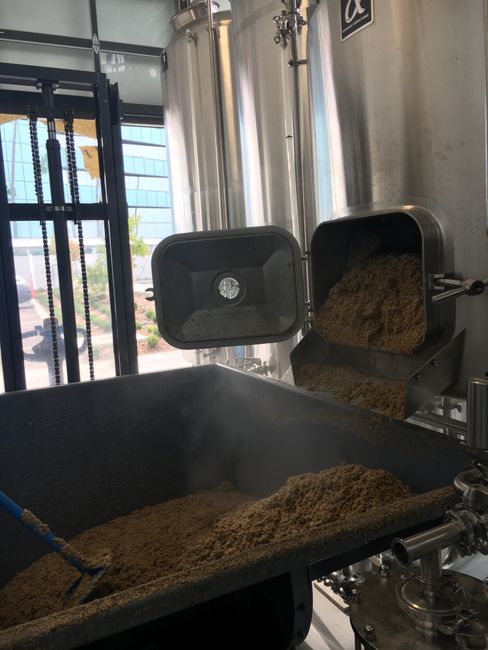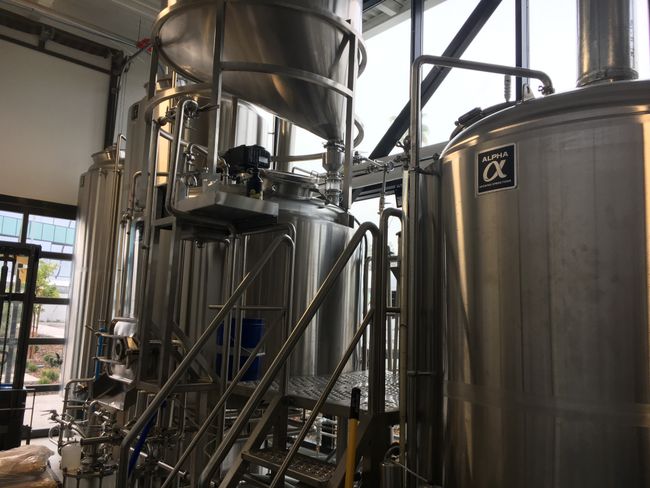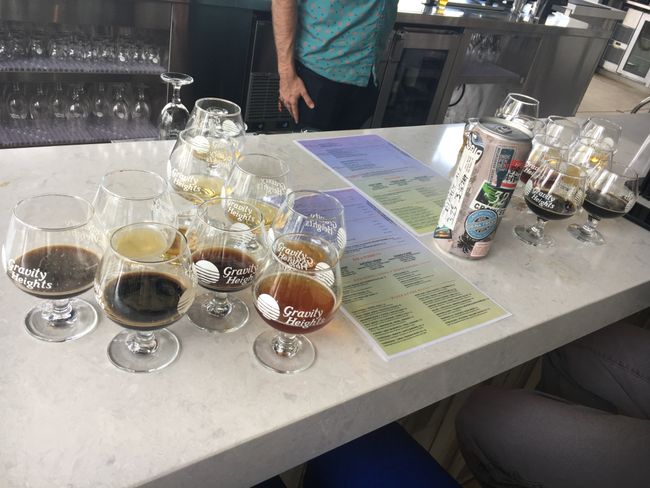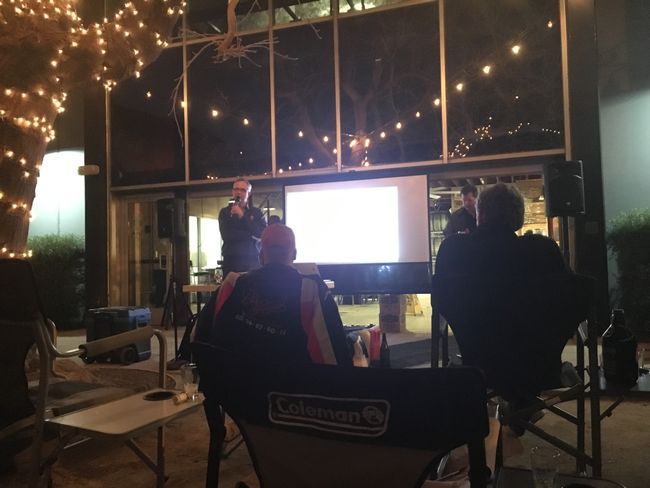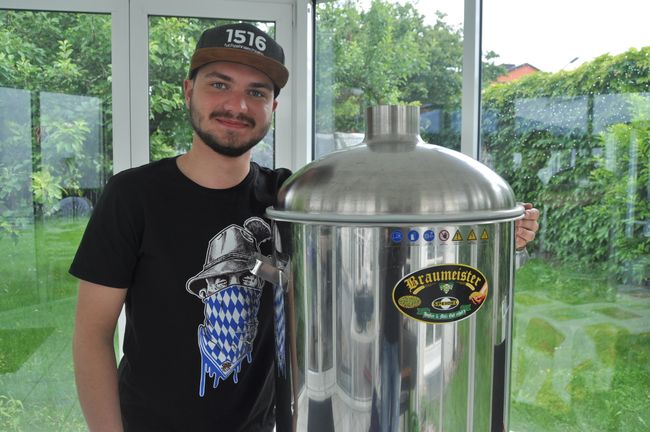
Bier- und Brauereireise USA
vakantio.de/bier-usa
San Diego, CA (4)
प्रकाशित भइल बा: 11.04.2019
न्यूजलेटर के सब्सक्राइब करीं
QUAFF (Quality Ale and Fermentation Fraternity) Meeting @Karl Strauss
Curt also took me to a QUAFF meeting, which is the largest, oldest and most influential homebrewer club in the USA and especially in San Diego. This is the origin of most brewers in San Diego and almost all San Diego breweries. It is, so to speak, the core of knowledge and teaching for brewers in the region. All of the major and old craft breweries (Alesmith, Ballast Point, Green Flash, Stone, Coronado, Karl Strauss, ...) originated from the original members of QUAFF. 9 times the 30-year-old club was voted Homebrew Club of the Year in the whole nation. Most of Curt's contacts come from this club. In the meeting, which took place at Karl Strauss' main brewery, various events were presented, winners of internal tasting competitions were presented (IPA winner was 'Hazy IPA sucks'😂), and beers from members were also presented and tasted. In addition, there was a presentation on water and oil profiles of hops. This was illustrated using a very good and super balanced Belgian IPA. There I was able to meet many familiar faces and also make interesting new contacts.
Gravity Heights
Skip, also a QUAFF member, opened a restaurant with a brewery three months ago with a cooperation partner. He is the former founder and owner of Alesmith, but sold the brewery to Peter Zien in difficult times. After 8 years in another industry, he is trying his hand at this new project. Curt arranged for us to visit and so I was able to brew a beer with his brewers Tommy and Mike for a day. In the 17.6hl (15bbl) brewhouse, we mashed in a NEIPA (classic for the US) with a lot of oats in the lautering tun. The whole process (as usual in the USA) is pumped in circles for 40 minutes, thus imitating the mashing process (single-step infusion). They usually get the yeast from other breweries and ferment in 4 single-batch (15bbl) CCTs and 2 double-batch (30bbl) CCTs. Dry hopping is done at the end of primary fermentation (yeast is supposed to prevent oxidation) for 3-5 days. The dry hops are simply thrown into an upper opening in the tank. The beer is aged for 4-6 weeks. The beer is clarified with Beer Clearax, which also reduces b-glucan and allows the beer to be marketed as 'low gluten'. The brewing water is treated with reverse osmosis and then salted appropriately. After fermentation, the beer is transferred to one of the 10 20hl serving tanks, from which kegs are occasionally filled for other bars. The laboratory consists only of the necessary CTA analysis and a microscope for cell counting. The brewhouse is cleaned once a week, the work paths are cleaned after each brew, and the CCTs are also cleaned every 2 months. When barrel-aged beers are brewed, they are filled into the barrel after fermentation with as little CO2 as possible. After the work was done, Skip sat down with me to try his range and kindly gave me a crowler of his Blond Ale.
न्यूजलेटर के सब्सक्राइब करीं
जबाब

यात्रा के रिपोर्ट अमेरिका के ह बा।
